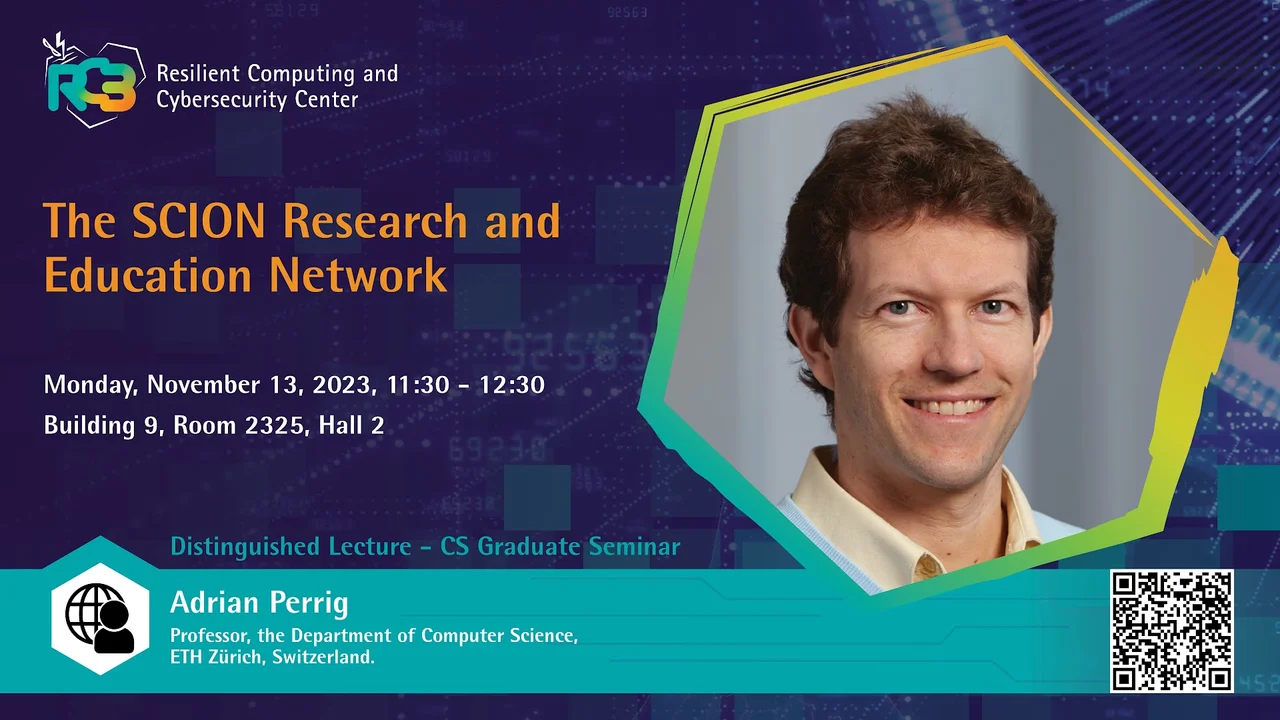
The SCION Research and Education Network
B9 L2 H2 H2
Imagining a new Internet architecture enables us to explore new networking concepts without the constraints imposed by the current Infrastructure. In this presentation, we invite you to join us on our 14-year-long expedition of creating the SCION next-generation secure Internet architecture.
Overview
Abstract
Imagining a new Internet architecture enables us to explore new networking concepts without the constraints imposed by the current Infrastructure. In this presentation, we invite you to join us on our 14-year-long expedition of creating the SCION next-generation secure Internet architecture.
Deployment of a new internet architecture appears almost infeasible, facing a long road to widespread deployment. A large part of the challenge is dependency loops among a number of constituents: end users, leaf (autonomous system) domains, ISPs, OS writers, and application developers. End users rely on their leaf domain and applications or OS supporting the new architecture -- but their adoption is driven by end-user demand. Similarly, ISPs require leaf domain demand, but leaf domain demand can only emerge once ISPs offer the new technology.
To break these dependency cycles, we suggest equipping 1,000,000 end hosts with access to the new network architecture -- in anticipation of providing sufficient incentives for a virtuous cycle of adoption to get started. In this talk, we will discuss how we plan to achieve this with the SCION research and education network.
Brief Biography
Adrian Perrig is a Professor at the Department of Computer Science at ETH Zürich, Switzerland, where he leads the network security group. He is also a Distinguished Fellow at CyLab, and an Adjunct Professor of Electrical and Computer Engineering at Carnegie Mellon University. From 2002 to 2012, he was a Professor of Electrical and Computer Engineering, Engineering and Public Policy, and Computer Science (Courtesy) at Carnegie Mellon University. From 2007 to 2012, he served as the technical director for Carnegie Mellon's Cybersecurity Laboratory (CyLab). He earned his MS and PhD degrees in Computer Science from Carnegie Mellon University and spent three years during his PhD at the University of California at Berkeley. He received his BSc degree in Computer Engineering from EPFL. He is a recipient of the ACM SIGSAC Outstanding Innovation Award. Adrian is an ACM and IEEE Fellow. Adrian's research revolves around building secure systems -- in particular, his group is working on the SCION secure Internet architecture.